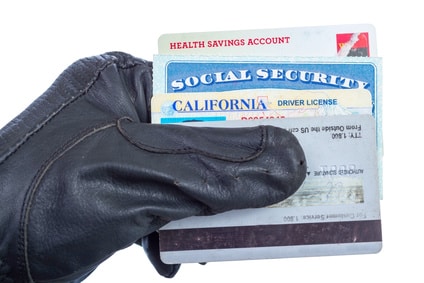My Mom’s not in London, but her debit card is.
You just received a phone call from the bank. As a co-signer on your mother’s bank accounts, you are notified whenever something strange happens; and apparently, your mother’s debit card is in London, England.
Unfortunately, your mother isn’t on vacation, but is in a nursing home two miles away. Your stomach sinks as you realize someone has access to your mother’s financial information.
You begin to wonder how they got the information and what other information they may have. These are scary thoughts for anyone but especially for the elderly.
Available Scams
A Solicitation Phone Call: many identity thieves will call elderly individuals faking any number of scenarios. They are true con artists and ultimately convince the elderly person that they can be trusted and that their financial account information is necessary to donating or purchasing whatever they are calling about.
Online “Phishing”: An identity thief will send spam messages to the elderly person claiming to be their financial institution or credit card company and ask the person to verify the financial information on file or correct any mistakes.
Using a Credit Card: Identity theft can occur simply by allowing a third party access to your credit card, such as a waiter or sales clerk at a department store; or even something such as purchasing a product online.
Elderly are More Susceptible to Identify Theft
We tend to worry about our elderly family members because sometimes it seems that they come from a time not suited for ours because they are just too trusting. Well science may support your fears.
According to a recent article in USA Today, neurological changes in elderly persons may be to blame for their being overly trusting. Actually, the study showed that the elderly persons were less likely to identify the subtle body language of an individual that should be regarded as untrustworthy, thereby leading the elderly person to trust an untrustworthy person.
—See USA Today, Why are elderly more vulnerable to scams? Brain changes, Dec, 8, 2012
Preventing Identity Theft
Always discuss with your loved ones, especially those that are older, how to protect their financial information.
Ensure the elderly person knows not to give out personal information through the internet, phone, or mail unless they have contacted the individual asking or they are known to them.
Cut up any unused cards or lock them in a safety deposit box.
Don’t make copies of their driver’s license for anyone.
Be careful of who has access to credit cards. Do not let wait staff or sales clerks take a card where you cannot see or follow.
Buy a shredder! Shred any documents that contain personal and/or financial information.
Have any mail or financial documents mailed to a PO Box with a key rather than a home address where mail can be left unattended and available to strangers.
Already a Victim?
Once you discover that an elderly individual has fallen prey to identity theft, action should be taken as quickly as possible. Contact an elder law attorney or an attorney that deals particularly with identity theft for counsel and visit the following websites for more information:
Texas Attorney General ID Theft
Federal Trade Commission Consumer Information
Texas DPS ID Theft Information Guide
–Authored by Kayla R. Wimberley, Esq.,
Matthew Harris Law, PLLC – Estate Management Division
1001 Main Street, Suite 200, Lubbock, Texas, 79401-3309
Tel: (806) 702-4852 | Fax: (800) 985-9479

